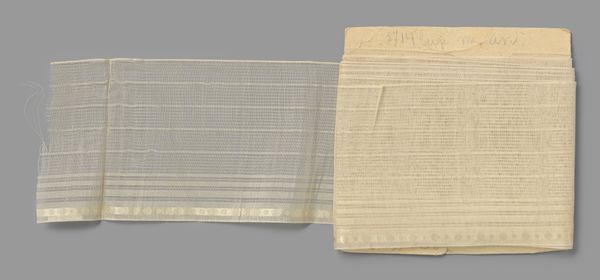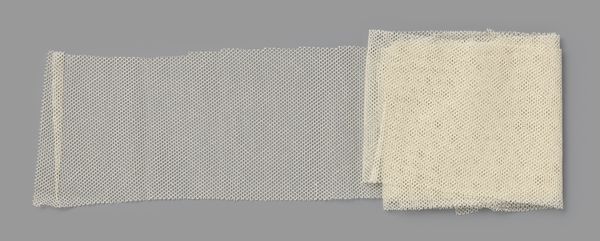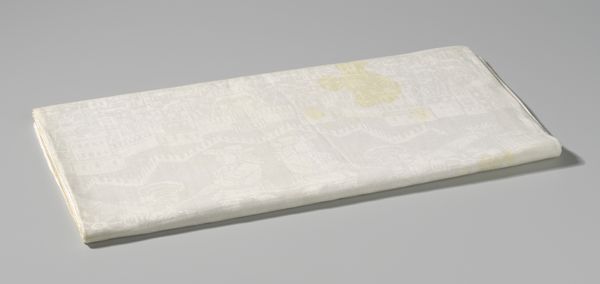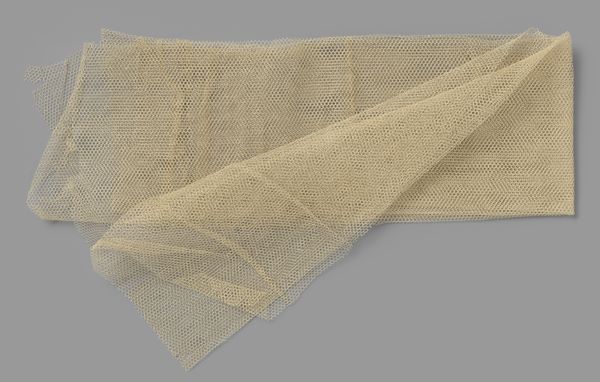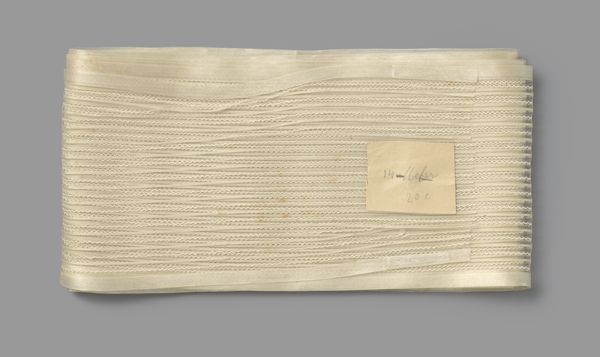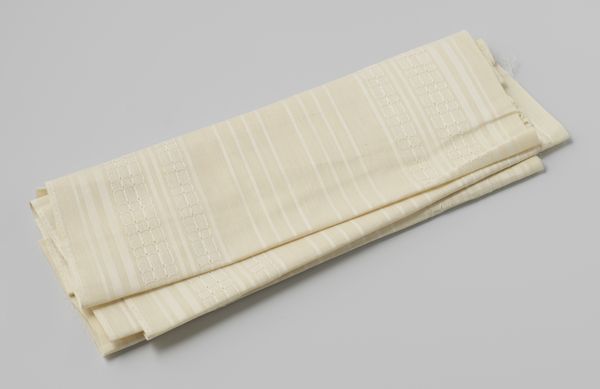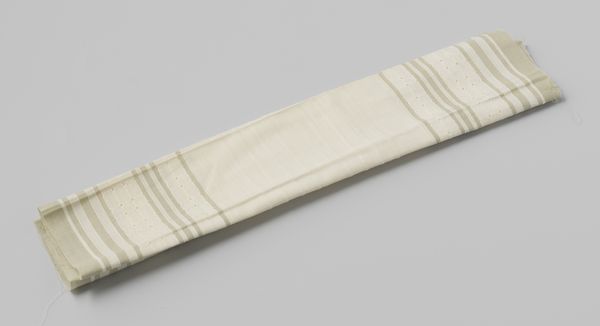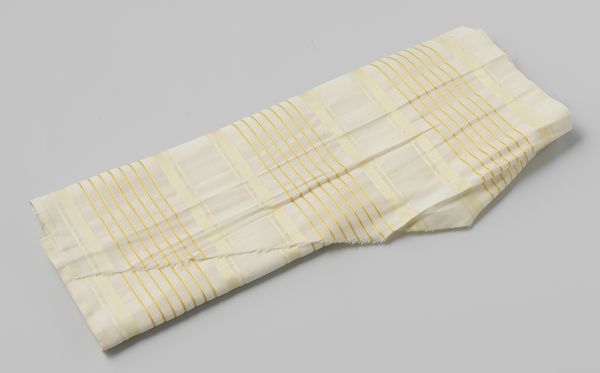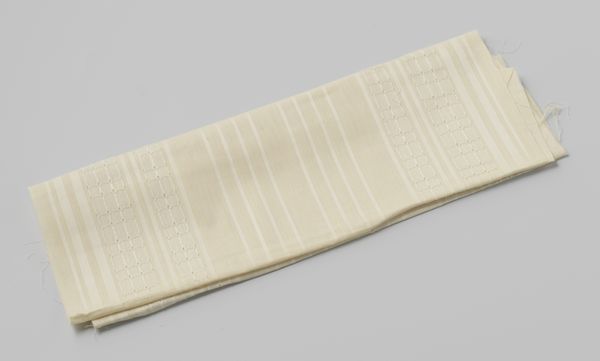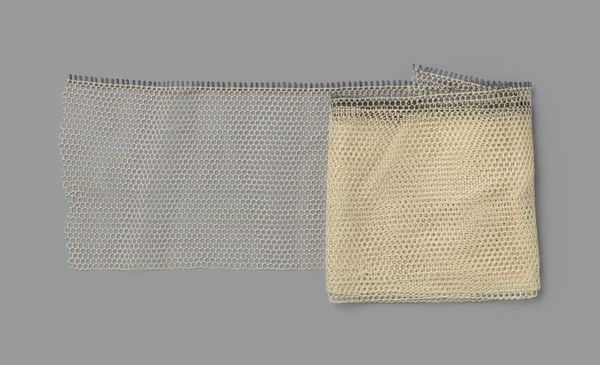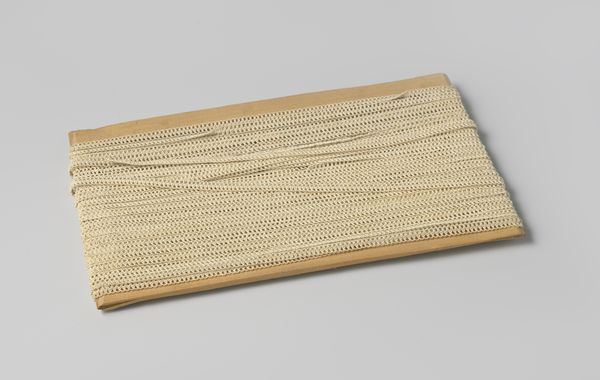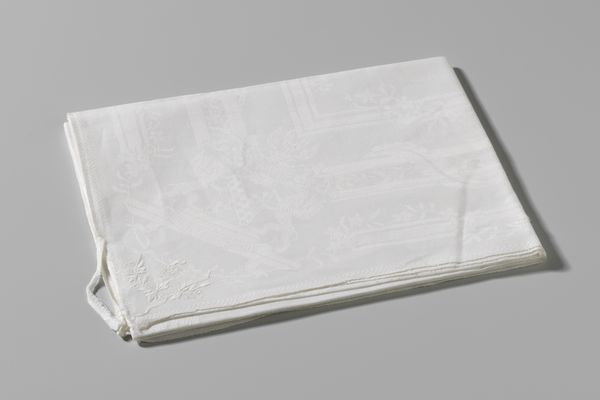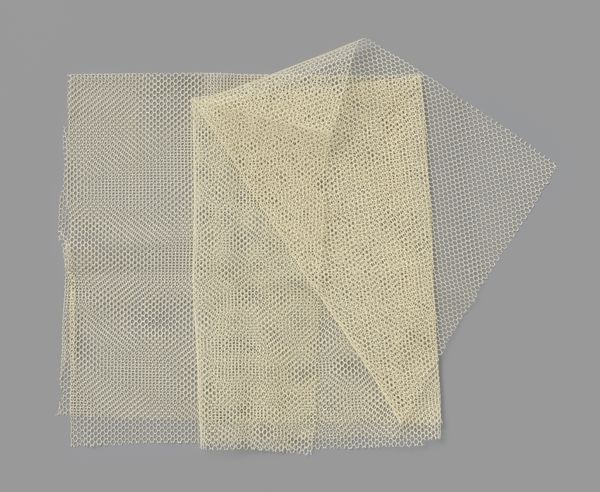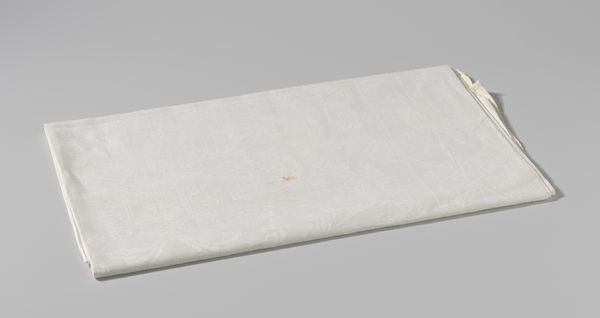
Metrage crème-wit lint van zijden gaas met ingeweven zigzagbanen c. 1900
0:00
0:00
gustavschnitzler
Rijksmuseum
mixed-media, textile
#
fashion design
#
mixed-media
#
art-nouveau
#
fashion mockup
#
textile
#
fashion based
#
historical fashion
#
wearable design
#
fabric design
#
clothing photo
#
decorative-art
#
fashion sketch
#
design on paper
#
clothing design
Dimensions: width 12 cm, length 25.5 cm, height 1 cm
Copyright: Rijks Museum: Open Domain
Curator: Here at the Rijksmuseum, we have an intriguing example of fashion design from around 1900: a length of cream-white silk gauze ribbon featuring woven zigzag patterns. Editor: It's incredibly delicate. The way the light filters through it, it almost looks like solidified light itself. There's an ephemeral quality to the ribbon. Curator: The Art Nouveau period often utilized such seemingly simple motifs in complex ways, and of course it had enormous influence in decorative arts of that era. Consider the zigzag—it's an ancient symbol found across cultures. It might suggest water, energy, even lightning... a dynamic force contained within this delicate material. Editor: Exactly! Thinking about the material properties, silk production itself involved an intensive process and a specialized labour force and knowledge in silk worm cultivation and treatment, transforming something as basic as a silkworm’s secretion into an object of incredible worth, even an industry! Curator: Certainly, the silk contributes to the luxurious feel. This was a high-status textile, destined for elaborate gowns or embellishments for the upper classes. We must remember the cultural associations that fine fabric holds—as both signifier and object of prestige. Editor: It is striking how much the elegance hinges on control. The textile’s subtle design reveals its potential use as part of a fashion object: perhaps ruffles on an elegant cuff. I want to ask, what would it take to undo it? Curator: A single snag, no doubt. Such beautiful pieces from that era offer more than adornment; they are emblems of ideals about the past. Think how garments, particularly among elites, can reference history as legitimacy. It tells us much about how cultural values are passed on and adapted. Editor: Indeed! Analyzing its zigzags and weaves prompts a different sort of understanding about history. Both have provided new points of reflection on its materiality.
Comments
No comments
Be the first to comment and join the conversation on the ultimate creative platform.
